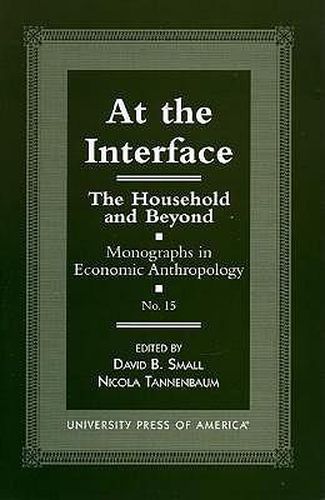Readings Newsletter
Become a Readings Member to make your shopping experience even easier.
Sign in or sign up for free!
You’re not far away from qualifying for FREE standard shipping within Australia
You’ve qualified for FREE standard shipping within Australia
The cart is loading…






Co-published with Society for Economic Anthropology (SEA), this volume takes a unique approach to the study of economics. Rather than concentrating on a defined analytical unit, it explores economics from the interface. That is, it examines the various kinds of relationships that can exist among and within economic units in a community and beyond. The chapters treat the theme of the interface from four different perspectives: intracommunity interfaces, interfaces and the organization of communities, extracommunity interfaces, and the question of interfaces in archaeological investigations. The authors address various topics related to household economy, including the creation of different identities through shared labor, the dialectical relationship between global forces and local producers in structuring economic contexts, strategies that promote economic flexibility, and environmental adaptation.
$9.00 standard shipping within Australia
FREE standard shipping within Australia for orders over $100.00
Express & International shipping calculated at checkout
Co-published with Society for Economic Anthropology (SEA), this volume takes a unique approach to the study of economics. Rather than concentrating on a defined analytical unit, it explores economics from the interface. That is, it examines the various kinds of relationships that can exist among and within economic units in a community and beyond. The chapters treat the theme of the interface from four different perspectives: intracommunity interfaces, interfaces and the organization of communities, extracommunity interfaces, and the question of interfaces in archaeological investigations. The authors address various topics related to household economy, including the creation of different identities through shared labor, the dialectical relationship between global forces and local producers in structuring economic contexts, strategies that promote economic flexibility, and environmental adaptation.